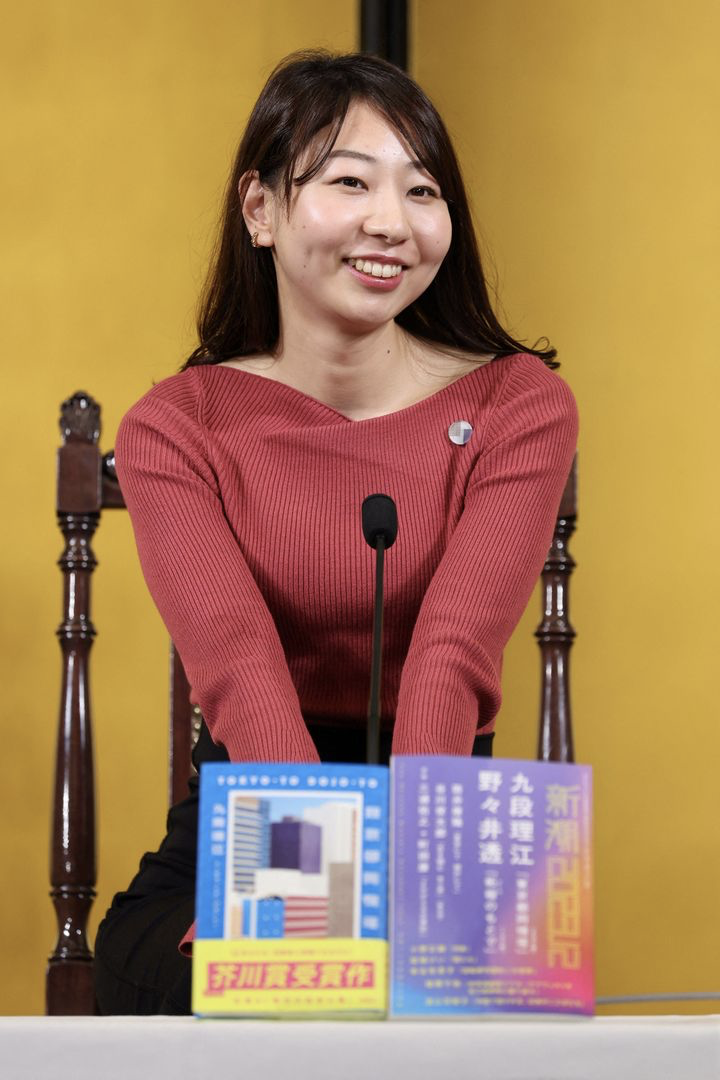Rie Kudan
Rie Kudan has engaged in writing works of fiction for prestigious literary competitions in Japan. She notably won the esteemed Akutagawa Prize in January 2024 with a science fiction novel. Previously not well-known for the themes of her writings, her narrative style, or even her full name, she has now vaulted into the international spotlight as an author celebrated for her literary prize-winning novel, created with the assistance of artificial intelligence.
Rie Kudan, an emerging Japanese artist, is currently resonating across the literary world in a remarkably unexpected manner, as she acknowledged in an interview with SkyTG24 Italia. Her story has notably reignited the debate on employing artificial intelligence (AI) in art and literature, urging a reevaluation of the artist's role amid evolving technological advancements. This scenario also leads to broader reflections on the future role of humans in societal, ethical, creative, and professional contexts.
However, our focus here is not on dissecting these complex debates in depth. Instead, we aim to present a narrative centered around the author, exploring Rie Kudan's persona, her literary creations, and her motivations for integrating AI into her writing process. Delving into her story naturally brings us to consider the nuanced interplay between art and technology, encouraging us to reflect on the evolving relationship between human and machine cognition and to speculate on future directions of literature.
The author Rie Kudan (YUKI KUROSE / YOMIURI / THE YOMIURI SHIMBUN / AFP)- Photo on francetvinfo.fr
Identity of an Emerging Author
Born in 1990 in Urawa, Saitama Prefecture, Rie Kudan now resides and works in Chiba Prefecture, Japan. She epitomizes a generation that was accustomed to having a computer at home from an early age, with mobile phones and the internet quickly becoming integral parts of daily life. For her, engaging with technology was as instinctive as browsing through books, influencing her path from the outset. Her professional journey in literature began at a used book retailer, progressed through a specialization school in international business, and culminated in a role as a research assistant at a university, all while she was developing her craft as a novelist.
Her ascent in the literary world began with her victory at the Bungakukai competition for debut authors in 2021 with her story "Warui Ongaku" (Bad Music). Subsequently, she received nominations for the Akutagawa Prize and the Mishima Yukio Prize in 2022 for her novel "Schoolgirl." These literary competitions, prestigious in Japan, are known for recognizing authors who push against conventional norms, thereby providing significant visibility, opportunities for publication, and monetary awards.
By 2023, Rie had garnered further recognition, receiving a significant accolade from the Agency for Cultural Affairs (ACA) and being honored with the Noma Prize for new writers. This accumulation of accolades underscores her profound literary foundation and distinctive talent, transcending mere technological prowess.
Her Triumph with the Akutagawa Prize, January 2024
Fast forward to January 2024, when Rie Kudan celebrated a milestone achievement by securing the Akutagawa Prize for her novel "Tokio-to Dojo-to" (Tokyo's Tower of Sympathy). She revealed that about 5% of the novel was composed with the support of AI, specifically the ChatGPT chatbot, which sparked vibrant discussions, especially on social media.
Artificial Intelligence, as a field, concentrates on developing systems that emulate human cognitive functions. The ethical implications of AI, intensely debated among scientists and philosophers, have been spotlighted by prominent figures like Stephen Hawking, who in 2014 highlighted the potential existential threats posed by AI. These discussions emphasize the necessity of contemplating the future impact of AI advancements.
During her award acceptance, Rie elaborated on her utilization of the ChatGPT chatbot to craft parts of her novel, a decision that was lauded by the jury. She employed this AI tool, designed to simulate conversational exchanges, to enhance her narrative, thereby stimulating a broader conversation about the intersection of AI with creative expression and its potential implications for the literary domain.
Photo in article by David Mouriquand on euronews.com
Contemplating Literature's Future with AI
What vision does Rie Kudan harbor for literature's evolution in the context of AI? Her insights suggest an appreciation for AI as an augmentative tool for artistic expression, envisioning a future where technology enriches rather than eclipses human creativity. This perspective invites a thoughtful exploration of AI's potential to enhance the creative process, sparking discussions on the balance between technological innovation and the intrinsic value of human creativity in art.
Her reflections inspire contemplation on the long-term impact of AI in creative writing, challenging us to envisage a future where technology and human creativity coexist in a harmonious and mutually enriching relationship, fostering a landscape where artistic expression is amplified by technological advancements.
Deciphering "Tokyo's Sympathy Tower"
Diving deeper into her acclaimed work, "Tokyo's Sympathy Tower," we encounter a narrative heavily influenced by European cultural thought, particularly the philosophies of Italian philosopher Giorgio Agamben. This political fantasy novel unravels a story centered around a uniquely conceptualized tower, intended as a prison but paradoxically designed as a welcoming space conducive to the reintegration of its inhabitants. Through this narrative, Rie Kudan constructs a speculative future society governed by artificial intelligence and dominated by a culture of "political correctness," wherein her literary experiment gains profound significance, blending the novel's thematic depth with its storytelling prowess.
For those keen on exploring this significant work, it is noted that the translation into English is pending, promising future access to an international audience. Meanwhile, readers can acquaint themselves with her earlier work, "Schoolgirl," available in English, where the thematic exploration of technology is already prominent.
Looking forward, Rie Kudan's creative trajectory is poised to continue with her upcoming publication, "Shi Wo Kaku Uma" (The Poem of the Horse), anticipated to be another exploration within the science fiction genre. This forthcoming novel promises to delve into speculative technologies not yet realized, offering a narrative that exists solely within the realm of her imaginative literature. The anticipation surrounding this release is palpable, as we await to see whether her future works will provoke further discourse or stand as unique literary experiments that further showcase her sensitivity to the interplay between technology and human relationships.



